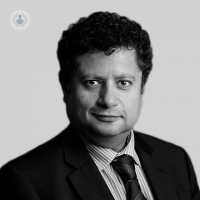Functional neurosurgery; charging and changing how the brain works
Written in association with:What do you know about functional surgery? Functional surgery changes how the body works, without changing its structure, in this way it is very different from traditional surgery which removes parts of the body and changes the structure of other parts. Professor Ashkan talks about the fascinating world of functional surgery, in particular, functional neurosurgery, that alters the function of nerve tissue in parts of the brain, spinal cord and nervous system.

Traditionally surgery has been a process whereby you change the structure of the body. If you have appendicitis, the appendix is removed or if you have a damaged spinal disc, the disc is removed. Traditional surgery alters the anatomy or the structure of parts of the body. Functional surgery is fundamentally different because the structure of the body is not changed, but rather its function.
Functional surgery essentially uses surgical techniques to alter how the body works, without altering its make-up or structure. Functional surgery has a lot in common with medicine rather than surgery. In relation to medicine, drugs change the function of body parts. Thyroid drugs alter the thyroid. Functional surgery uses surgical techniques rather than drugs to alter the function of body parts but the end goal is the same, changing how a part of the body functions so that it can work properly. Both drugs and functional surgery change how parts of the bodywork, unlike traditional surgery which changes the body’s structure.
Functional neurosurgery uses surgical techniques to correct the function of neural tissue or nerve tissue. This could involve changing the function of part of the brain, spinal cord, cranial nerves or peripheral nerves. An example of functional neurosurgery is deep brain stimulation, whereby electricity is used to change the function of the brain. Other examples of functional neurosurgical procedures include spinal cord stimulation and occipital nerve stimulation.
Electrical stimulation is a technique of functional neurosurgery that uses electricity to change the function of nerves and tissues in the brain and nervous system. Electrodes are placed into tissues and a battery into the body. The batteries generate the electricity and the electrodes transmit the electricity to the part of the brain, spinal cord or nerves that need to be altered. Different types and intensities of electricity can be administered by altering the current, voltage, pulse width and frequency. The electric currents change the function of the nerves, without changing their structure.
To find out more about Professor Ashkan and the London Neurosurgery Partnership click here


